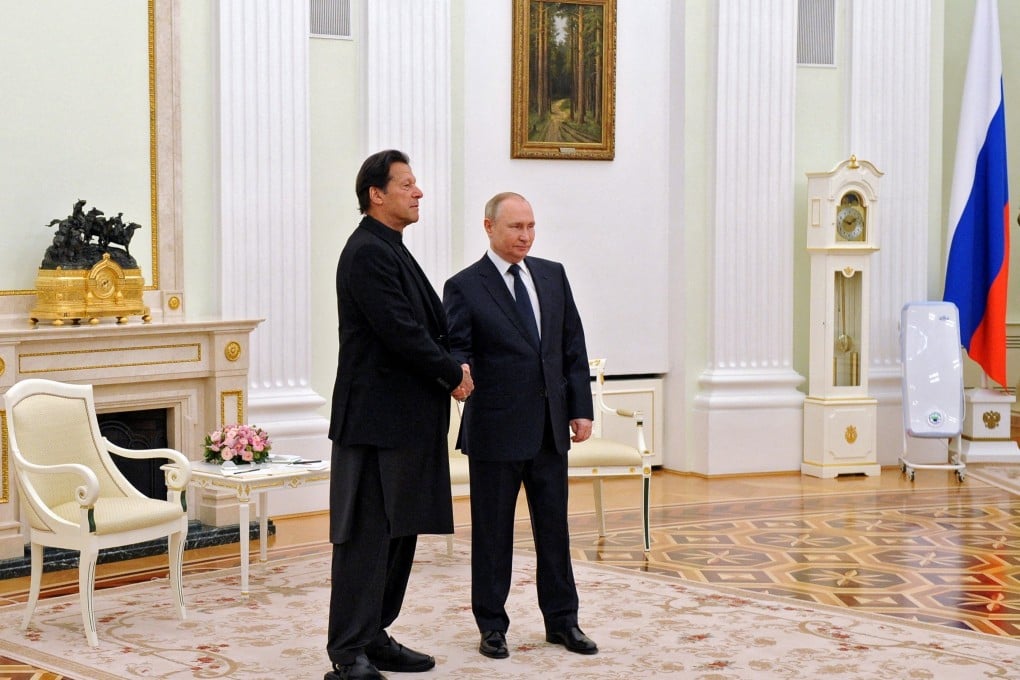Advertisement
Opinion | Sandwiched or a bridge? Pakistani prime minister’s Russia visit highlights South Asia’s predicament
- Imran Khan’s visit to Moscow as Russia invaded Ukraine has riled the West, but why is Pakistan building ties with its Cold War enemy?
- Islamabad says it won’t join a bloc, but US courting of India and China’s rising influence is making it harder to maintain balanced relations between rival powers
Reading Time:3 minutes
Why you can trust SCMP
4

Pakistani Prime Minister Imran Khan’s visit to Moscow on February 23-24, amid escalating Russia-West tensions over Ukraine, speaks to the shifting geopolitical sands in South Asia, undergirded by great power rivalry.
Khan’s decision to press ahead with the trip, despite the US communicating its position on Ukraine to Pakistan, highlights the importance Islamabad attaches to its budding strategic relations with Moscow. Indeed, it considered the trip, planned long before the Ukraine invasion, to be unrelated to Russia-West tensions.
However, Pakistan’s move to forge closer ties with Russia will no doubt be constrained by its deeply embedded financial and economic dependence on the West.
Advertisement
During Khan’s Moscow visit, the two sides discussed common concerns emanating from Taliban-controlled Afghanistan, including the humanitarian crisis and preventing an economic meltdown in the country. They also discussed the US$2.5 billion Pak Stream, a proposed 1,100km gas pipeline stretching from the Karachi port to Kasur, Punjab.
Over the years, Washington’s lukewarm attitude and Beijing’s coaxing have bridged the Pakistan-Russia divide. In terms of optics, the meeting between the leaders of Pakistan, America’s staunch Cold War ally, and Russia, just as President Vladimir Putin announced the invasion of Ukraine, has profound implications for South Asia’s great power alliances.
Advertisement
The West is likely to view Khan’s presence in Moscow as Pakistan’s tacit approval of Russia’s position, Islamabad’s professed neutrality notwithstanding.
Advertisement
Select Voice
Choose your listening speed
Get through articles 2x faster
1.25x
250 WPM
Slow
Average
Fast
1.25x
